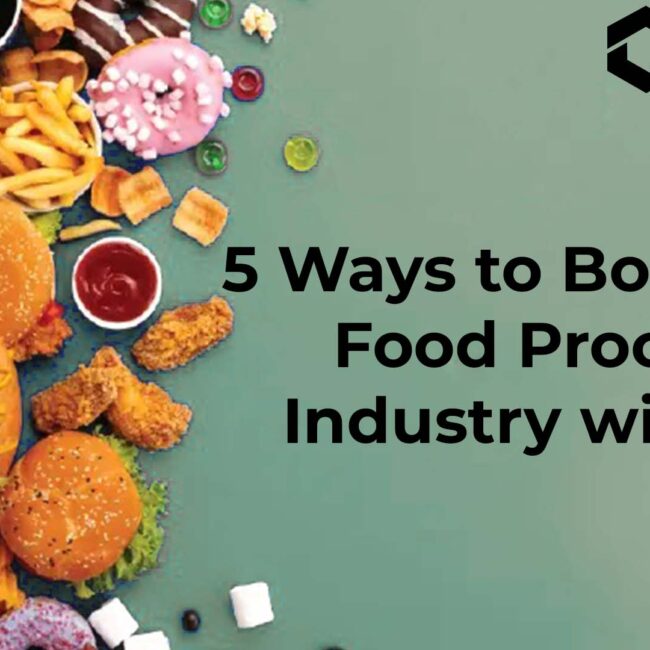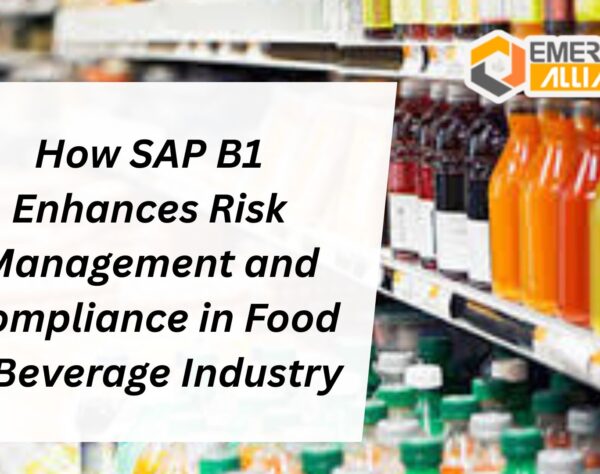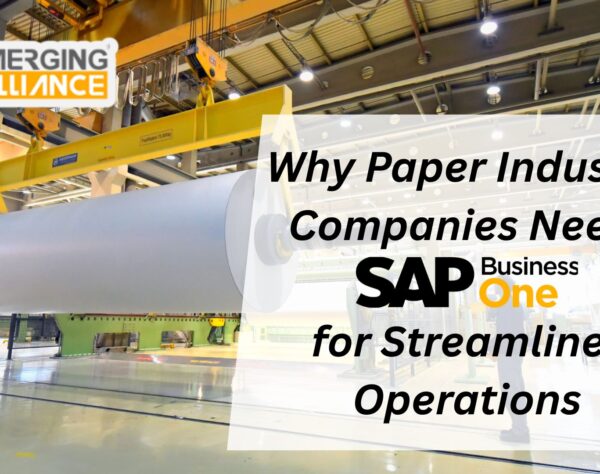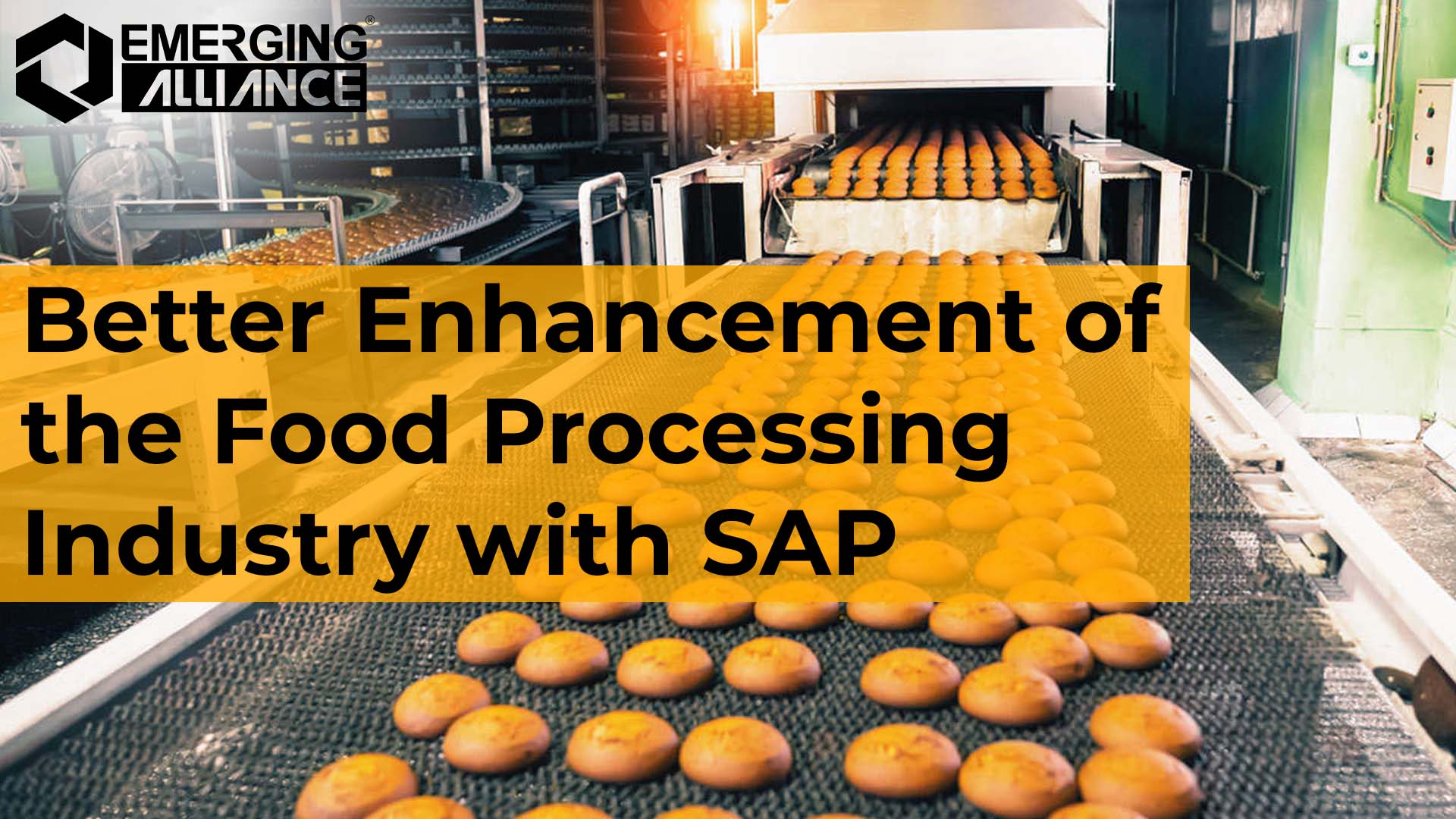
Better Enhancement of the Food Processing Industry with SAP
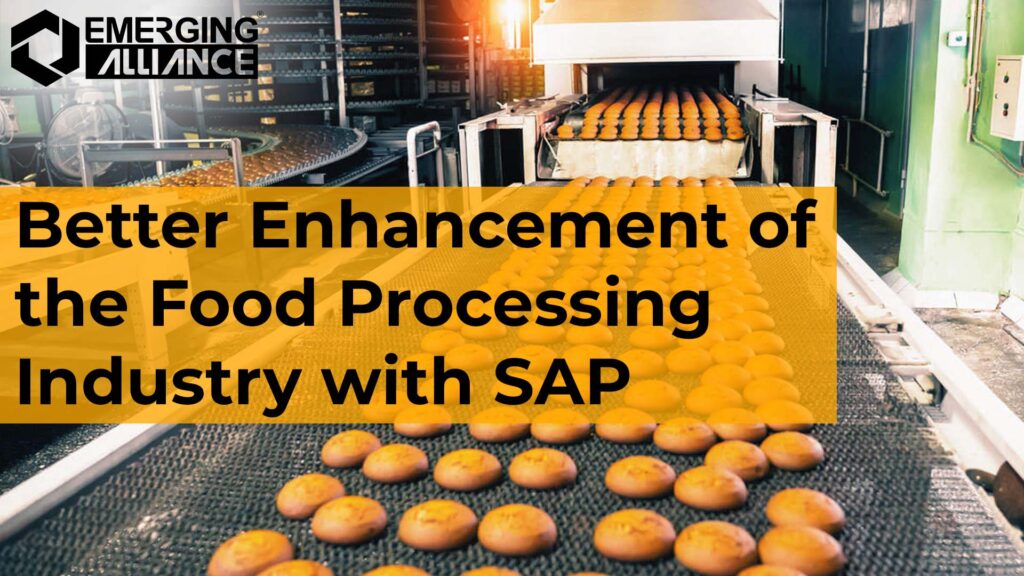
Know Why You Need SAP for the Food Processing Industry?
In the fast-paced world of the food processing industry, efficient management of resources, streamlined operations, and strict quality control are vital for success. SAP offers a comprehensive suite of software solutions that can help businesses in the food processing industry achieve these objectives and gain a competitive edge. In this post, we will explore some of the key features of SAP that can greatly benefit the food processing industry.
Supply Chain Management (SCM) Integration with SAP:
SAP provides robust supply chain management capabilities, enabling food processing companies to optimize their supply chain processes. With SAP’s SCM module, businesses can monitor inventory levels in real-time, track shipments, and manage procurement processes effectively. The integration of SCM with other SAP modules, such as production planning and forecasting, enables companies to enhance their demand planning accuracy. It also minimizes stock outs or excess inventory.
Recipe Management and Product Development:
For food processors, recipe management and product development are critical aspects of their operations. SAP offers a recipe management module that allows companies to create, modify, and track recipes efficiently. This feature helps maintain consistency in product quality, manage ingredient specifications, and calculate accurate nutritional information. With SAP product development capabilities, businesses can also streamline the entire product lifecycle. This starts from ideation to commercialization, ensuring faster time-to-market for new food products.
Quality Control and Compliance in Food Processing:
Maintaining strict quality control standards and regulatory compliance is essential in the food processing industry. SAP quality management module provides functionalities for real-time quality monitoring, inspection planning, and non-conformance management. It allows companies to enforce quality control measures throughout the production process, ensuring compliance with industry regulations and reducing the risk of product recalls or safety issues. Integration with other SAP modules facilitates seamless data exchange, traceability, and reporting, simplifying compliance audits.
Batch Management in Food Processing Industry:
Batch management is crucial for food processors, especially when dealing with perishable goods or products with specific shelf lives. SAP’s batch management feature enables companies to track and manage batches throughout the production and distribution processes. It allows for precise monitoring of batch-related data, including expiration dates, production dates, and storage conditions. By efficiently managing batches, food processors can minimize waste, optimize inventory rotation, and ensure product freshness and safety.
Analytics and Reporting with SAP:
Data-driven decision-making is a key driver of success in the food processing industry. SAP’s advanced analytics and reporting capabilities provide businesses with actionable insights into their operations. By consolidating data from various sources, SAP enables companies to perform in-depth analysis of key performance indicators (KPIs) such as production efficiency, yield, quality metrics, and customer demand patterns. These insights empower businesses to identify opportunities for improvement, optimize processes, and make informed decisions to drive growth and profitability.
Why SAP for Food Processing?
In the highly competitive food processing industry, leveraging the right technology can make a significant difference. SAP offers a range of features and modules that can greatly benefit food processing companies, enhancing their supply chain management, recipe management, quality control, batch management, and analytical capabilities. By harnessing the power of SAP, businesses can optimize their operations, ensure compliance with regulations, and stay ahead in an ever-evolving industry.
FAQs: How SAP Transforms the Food Processing Industry
1. What is SAP, and how does it help the food processing industry?
SAP is a business management software that helps food processing companies streamline operations, manage resources, ensure quality control, and improve efficiency.
2. How does SAP improve supply chain management for food processors?
SAP’s Supply Chain Management (SCM) module helps businesses track inventory in real-time, manage procurement, and prevent stock-outs or excess inventory.
3. Can SAP help with recipe management in food processing?
Yes! SAP’s recipe management module allows companies to create, modify, and track recipes, ensuring consistent quality, accurate nutritional values, and smooth product development.
4. How does SAP help maintain quality control in food processing?
SAP’s Quality Management module enables businesses to monitor product quality in real-time, conduct inspections, and ensure compliance with food safety regulations.
5. Why is batch management important in food processing, and how does SAP help?
Batch management helps track perishable goods, expiration dates, and storage conditions. SAP Batch Management feature ensures proper inventory rotation and minimizes waste.
6. How does SAP help food businesses with compliance and regulations?
SAP provides automated tracking, documentation, and reporting to help food processors meet industry regulations, conduct audits easily, and reduce the risk of recalls.
7. Can SAP provide data analytics for food processing companies?
Yes! SAP’s analytics and reporting tools help businesses analyze production efficiency, customer demand, and quality metrics, leading to better decision-making and cost savings.
8. How does SAP improve production planning in food processing?
SAP integrates demand forecasting, procurement, and production scheduling, ensuring optimal resource use and timely product delivery.
9. What are the biggest advantages of using SAP in the food industry?
SAP helps food businesses streamline operations, reduce waste, improve quality control, enhance supply chain management, and ensure compliance with industry standards.
10. Is SAP suitable for small and medium-sized food processing businesses?
Yes! SAP offers scalable solutions that can be customized for small, medium, and large food processing companies to optimize efficiency and growth
To know more about our SAP services, do visit us at: https://emerging-alliance.net/


